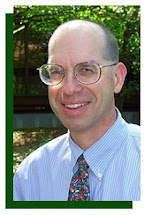
I've given many talks to young people and asked them what they'd like to do for a career.
Regardless of their answer, I tell them there is a place for them in conservation and resource management. Want to be a pilot? Forestry and wildlife management tasks need good pilots. Like to produce films and design interactive computer games? Conservation education needs outstanding videographers and computer experts. Like to work with money, figures, and design a budget? Conservation success depends upon accountable and accurate business practices.
There is a place in conservation for almost every area of expertise that I can think about. Experts in the traditional fields of fish, forest, and wildlife management have long recognized that the success of biologists and managers requires a wide variety of skills. This view continues to expand. I have what would be considered two traditional degrees in wildlife management and one in food animal production. While in school I became very interested in the people and policy aspects of resource management and gained some experience working in that area. I have used both the traditional education and my policy research experiences for almost 20 years in the area of human dimensions of resource management to help other more "traditional" resource managers make decisions.
Michael Hutchins, the Executive Director/CEO of The Wildlife Society, writes in the Spring, 2007, issue of The Wildlifer newsletter (available here):
"So, who are these wildlife professionals? A more traditional view would have us include only those individuals who have a degree in wildlife biology, ecology or management and who are working in a job in which they: (1) conduct scientific studies of wildlife biology or ecology; or (2) actively monitor and manage wildlife populations and/or their habitats."
and
"There are many professionals who play significant roles in wildlife management and conservation today that do not fit into this traditional mold. Among the most significant of these non-traditionalists are those who work on the human dimensions of wildlife management and conservation. Such individuals may have training in psychology, sociology, anthropology or economics. They may study human attitudes toward wildlife or wildlife management and utilization, cultural traditions that impact wildlife, or economic factors that influence our ability to sustain wildlife populations over the long-term. Since most of the challenges facing wildlife managers and conservationists today are anthropogenic in origin, it is critical that we understand the many complex issues that lie at the human-wildlife interface. Human dimensions will undoubtedly play a critical role in our ability to manage and conserve wildlife now and into the future."
I'm pleased to see this super-sized view of how many areas of expertise are needed to achieve conservation success. In the article there is discussion about the need for other types of expertise in addition to human dimensions.
More information about education programs in wildlife management is available here, and information about The American Fisheries Society is available here. Information for students from the Society of American Foresters is available here and information about the Soil and Water Conservation Society is available here.
Career and education information about human dimensions is in many places online. Purdue University has information here, there is a human dimensions research unit at Cornell University, available here, and information about the School of Natural Resources at the University of Missouri is available here.


No comments:
Post a Comment